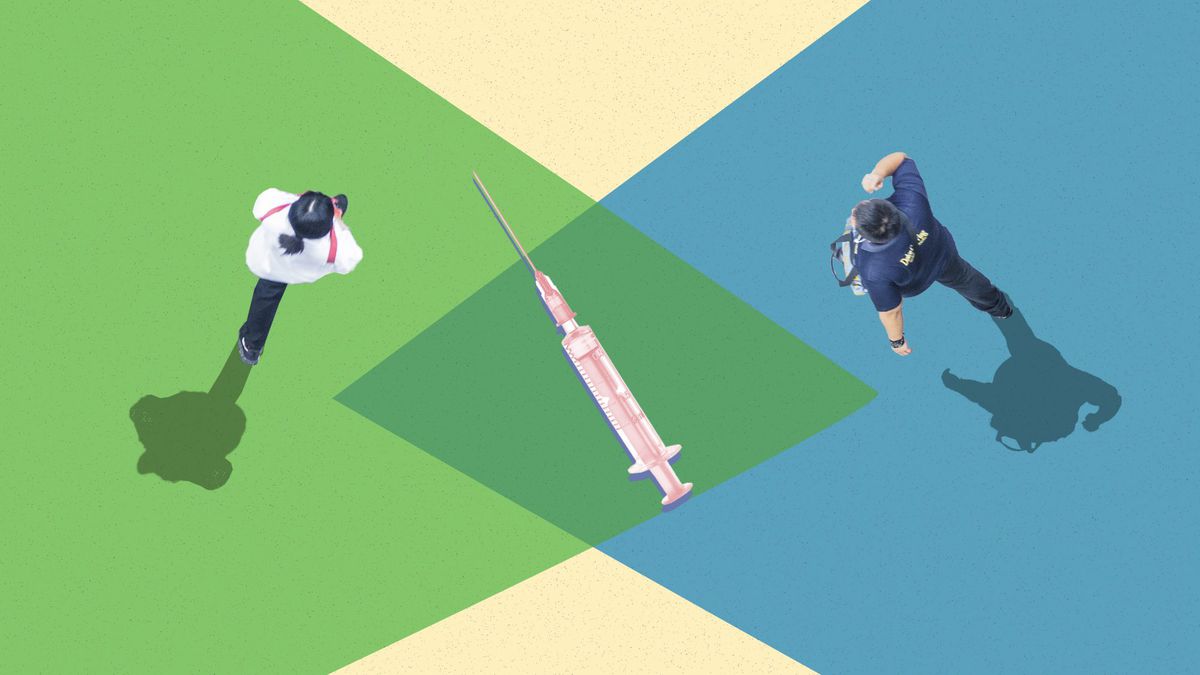Updated guidance from the Centers for Disease Control and Prevention (CDC) says people who have been fully vaccinated against COVID-19 don't need to quarantine if they are exposed to someone with the infection.
Typically, quarantining (isolating from other people, even those in the same household) for up to 14 days is recommended for people who have been exposed to COVID-19, to help curb the spread of the virus. Initially, this applied to anyone who has been exposed to COVID-19, except for people who had COVID-19 within the previous three months and show no symptoms.

But now, the CDC has expanded those exceptions to include people who have been fully vaccinated against the disease within the last three months and show no symptoms. (FYI: "fully vaccinated" means at least two weeks have passed since the person got their second dose of a two-dose vaccine or one dose of a single-dose vaccine.)
Infectious disease expert Amesh A. Adalja, MD, senior scholar at the Johns Hopkins Center for Health Security in Maryland, tells Health that he agrees with the change in guidance. "This corresponds with the guidance we give those who have recently recovered and have immunity," he says.
The CDC guidance says the risk that fully vaccinated people could spread the coronavirus to other people is "still uncertain." But it also states that "vaccination has been demonstrated to prevent symptomatic COVID-19; symptomatic and pre-symptomatic transmission is thought to have a greater role in transmission than purely asymptomatic transmission."
Dr. Adalja points to vaccine data from Israel's health maintenance organizations (HMOs) which shows extremely low rates of infections. Only 317 out of 715,425 (0.04%) of people became infected a week after becoming fully vaccinated against the disease—the period when increased immunity is expected to kick in. And the country of 9 million people is in a solid position—one in three of the population have received at least one COVID-19 shot, a much higher fraction than in any other country, and last week the shot was made available to anyone over 16.
At Israel's biggest COVID-19 testing center, researchers have observed a significant decrease in the amount of virus infected people carry—known as the cT value—among the most-vaccinated age groups, reported Reuters. This suggests that even if vaccinated people are exposed to the virus and get infected, they're less likely to infect others.
"This emerging data is showing that vaccinated people are not likely to spread the virus—and more is coming," Dr. Adalja says. "Plus, it's not biologically plausible to me that vaccines that are so effective at preventing symptomatic disease have no effect on transmission."
The CDC guidance is likely to evolve as more vaccine data becomes available. In the meantime, those who are fully vaccinated might not need to quarantine, but they should still watch for symptoms of COVID-19 for 14 days following an exposure, says the CDC. And if they experience symptoms, they should be evaluated, and possibly tested, for COVID-19.
Also important: While fully vaccinated people are now able to dodge quarantine if they are exposed to COVID-19, they're still recommended to comply with all other safety protocols everyone else continues to follow, including wearing face masks, social distancing, and avoiding crowds and poorly ventilated spaces.
The information in this story is accurate as of press time. However, as the situation surrounding COVID-19 continues to evolve, it's possible that some data have changed since publication. While Health is trying to keep our stories as up-to-date as possible, we also encourage readers to stay informed on news and recommendations for their own communities by using the CDC, WHO, and their local public health department as resources.
To get our top stories delivered to your inbox, sign up for the Healthy Living newsletter
Source: Read Full Article